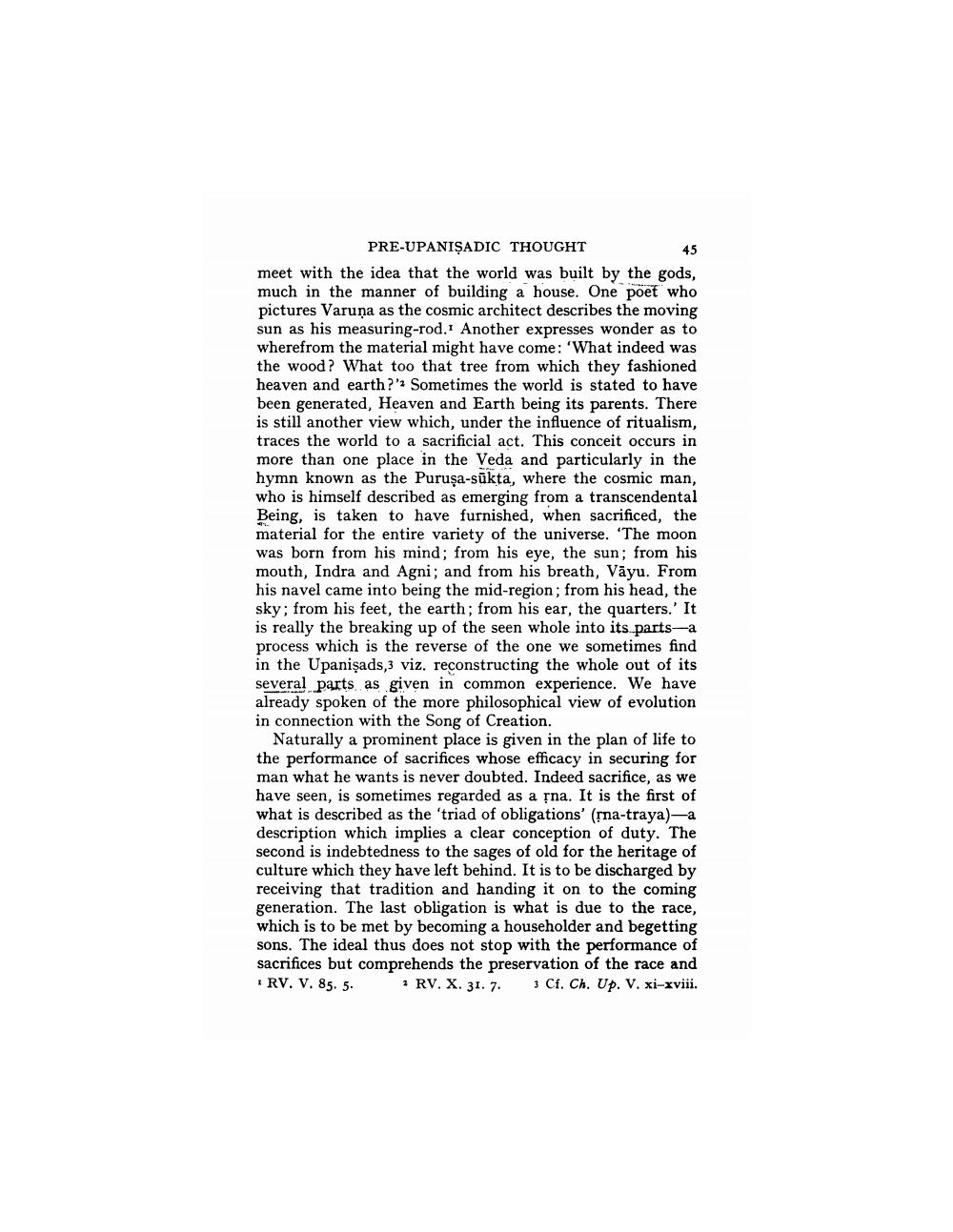________________
45
PRE-UPANIŞADIC THOUGHT meet with the idea that the world was built by the gods, much in the manner of building a house. One poet who pictures Varuņa as the cosmic architect describes the moving sun as his measuring-rod. Another expresses wonder as to wherefrom the material might have come: 'What indeed was the wood? What too that tree from which they fashioned heaven and earth?': Sometimes the world is stated to have been generated, Heaven and Earth being its parents. There is still another view which, under the influence of ritualism, traces the world to a sacrificial act. This conceit occurs in more than one place in the Veda and particularly in the hymn known as the Purusa-sūkta, where the cosmic man, who is himself described as emerging from a transcendental Being, is taken to have furnished, when sacrificed, the material for the entire variety of the universe. "The moon was born from his mind; from his eye, the sun; from his mouth, Indra and Agni; and from his breath, Väyu. From his navel came into being the mid-region; from his head, the sky; from his feet, the earth; from his ear, the quarters.' It is really the breaking up of the seen whole into its..parts-a process which is the reverse of the one we sometimes find in the Upanişads,3 viz. reconstructing the whole out of its several parts as given in common experience. We have already spoken of the more philosophical view of evolution in connection with the Song of Creation.
Naturally a prominent place is given in the plan of life to the performance of sacrifices whose efficacy in securing for man what he wants is never doubted. Indeed sacrifice, as we have seen, is sometimes regarded as a sna. It is the first of what is described as the 'triad of obligations' (rna-traya)-a description which implies a clear conception of duty. The second is indebtedness to the sages of old for the heritage of culture which they have left behind. It is to be discharged by receiving that tradition and handing it on to the coming generation. The last obligation is what is due to the race, which is to be met by becoming a householder and begetting sons. The ideal thus does not stop with the performance of sacrifices but comprehends the preservation of the race and RV. V. 85. 5. ? RV. X. 31.7. 3 Cf. Ch. Up. V. xi-xviii.




